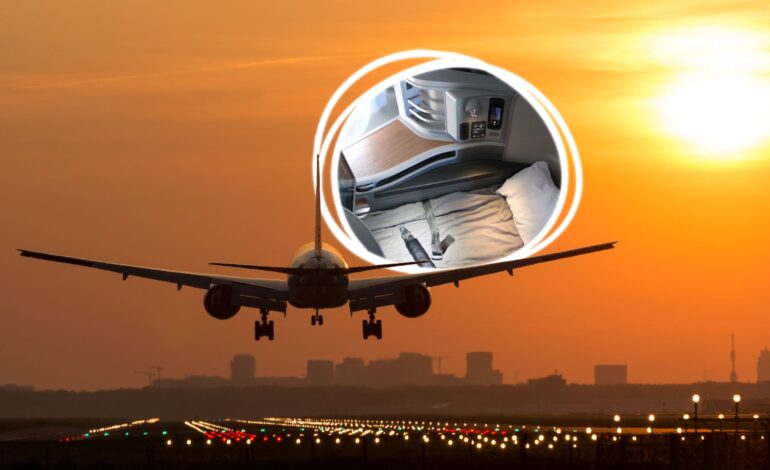Major US Airlines Abandon International First Class Service

The absence of international first class cabins among major US airlines has become increasingly noticeable. Once the epitome of luxury air travel, characterized by lie-flat suites and high-end service, first class is now largely missing from the offerings of carriers like Delta Air Lines and United Airlines. Instead, these airlines have shifted their focus to premium business class experiences that deliver similar luxuries at a lower cost.
Most US airlines have eliminated international first class due to shifting market dynamics. The demand for ultra-premium travel is insufficient to justify the maintenance of first class on long-haul international routes. According to industry sources, American Airlines is the only US airline currently offering this service, branded as “Flagship First.” However, even this exclusive product may soon be phased out.
Economic Factors Driving the Change
The decision to remove first class is heavily influenced by economic considerations. First class seats are expensive to install and occupy valuable cabin space. Airlines must consider the cost-to-revenue ratio, as first class is often not filled to capacity, resulting in lower returns on investment. According to Islands.com, while airlines in regions like Asia and the Middle East maintain first class for branding purposes, US carriers prioritize profitability.
Consumer behavior further complicates the equation. The typical business traveler in the US, often sponsored by employers, tends to rely on business class for their frequent, short-haul flights. Features such as comfortable seating, privacy, and effective workspaces are now standard in business class, making it a more appealing option. Airlines have responded by investing in premium business class products that include lie-flat seats and enhanced amenities.
The shift has been evident in the actions of major US airlines. Delta Air Lines removed its first class cabin from international flights, opting for Delta One Suites, while United Airlines replaced its Polaris Business Class with similar offerings. This trend reflects a broader movement in the industry towards more efficient and profitable seating arrangements.
Changing Demographics and Preferences
The financial pressures that have affected the middle class worldwide have also influenced travel habits. Consumer sentiment has shifted, with many former first class passengers now favoring business class or premium economy options. Even those who could previously afford first class are reconsidering their spending on luxury travel. A growing segment of the wealthiest travelers have opted for private jets, which offer comparable pricing when divided among multiple passengers.
While international carriers such as Emirates and Singapore Airlines continue to offer first class, their markets differ significantly from those in the United States. These airlines cater to a wealthier demographic and serve routes that justify the cost of maintaining first class cabins.
American Airlines has remained an exception in the US market, offering its Flagship First service on select international routes, including flights from New York to London and Miami to São Paulo. This service features fully lie-flat seats, gourmet dining, and access to exclusive lounges. However, the airline has announced plans to replace this offering with the new Flagship Suite Business Class in the coming years.
Future of Air Travel: A Shift to Business Class
As first class wanes, an evolved form of business class is taking its place, providing the luxuries once exclusive to first class. Modern business class cabins now feature sliding privacy doors, direct aisle access, and upgraded food options. These enhancements make it difficult to distinguish between the two classes, especially for travelers who prioritize comfort and service.
Industry experts agree that the future of air travel in the United States will not see a significant revival of international first class. While niche airlines may experiment with first-class-only aircraft, the broader market favors business class.
In conclusion, the decline of international first class among US airlines underscores a significant transformation in air travel. As airlines adapt to changing consumer preferences and economic realities, business class has emerged as the new standard for luxury travel. The good news for travelers is that the quality of the business class experience has never been better, offering many of the benefits of first class at a more accessible price point. As the industry continues to evolve, travelers can expect a comfortable and efficient flying experience, albeit under a different name.






